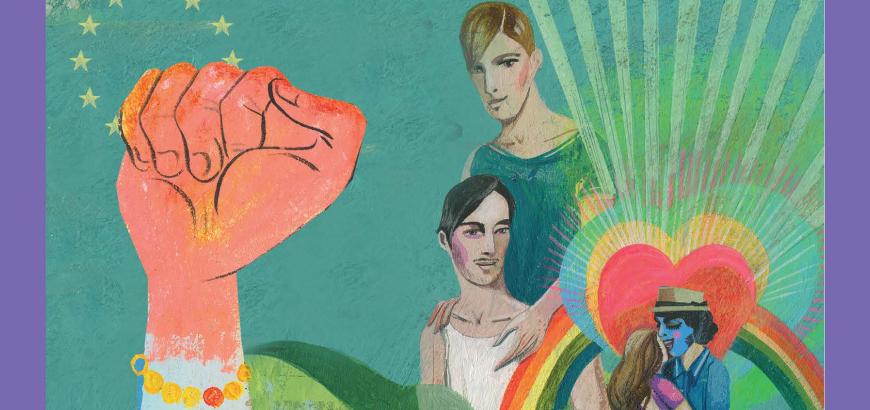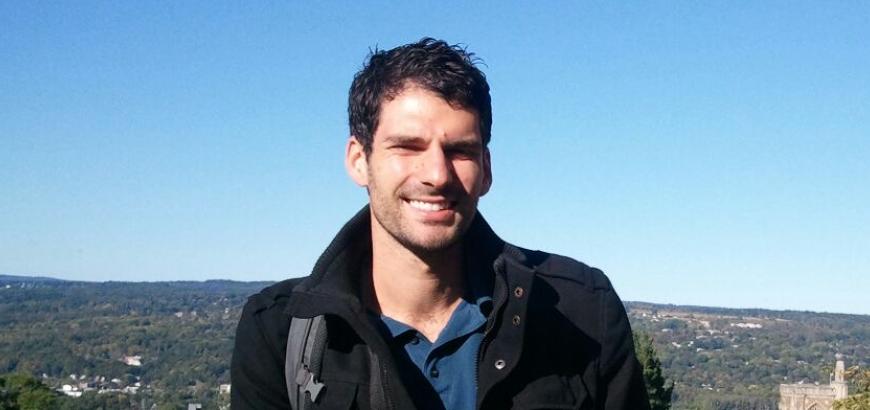I have such fond memories of my time at the University of Washington, where I majored in European Studies and minored in German. Those experiences, from German Film Noir, to a course (and performance) on Brecht's The Threepenny Opera, to my classes on German Politics have shaped much about how I think about European politics in my current career as a political scientist. Beyond studying the language, the ideas that percolated from Denny Hall helped me understand the driving themes of my work. For example, how nationalism and marginalization shape the lived experience and the mobilization of LGBTQ peoples in Europe. In fact, in a recent reflective essay (Ayoub 2019) I wrote to open a symposium on my 2016 book, I begin with a verse that deeply resonated with me in 2003, as a 19-year-old undergraduate student in that Brecht course.
"Denn die einen sind im Dunkeln
Und die andern sind im Licht.
Und man siehet die im Lichte
Die im Dunkeln sieht man nicht."
"There are some who are in darkness
And the others are in light
And you see the ones in brightness
Those in darkness drop from sight."
Already at that age, I recognized that many people in my own life, and many more beyond it, were quite literally dropped from sight (or invisible) in their societies, and ultimately faded from the political fabric of the states in which they existed. While Brecht was writing about different forms of marginalization, people who have experienced exclusion will empathize with his verses straightaway, even without context. My book, When States Come Out, and most of my work since, sets out to make an argument about such (in)visibility politics, both in terms of the political power of a group coming into the light as well as in the complex contradictions and resistance that “being seen” can provoke. I also wanted to understand the processes behind why some LGBT people, in some states, have to some degree, rapidly joined those in the light.
This is just one small example of how those early ideas consistently reappear in my work and in my thinking. Of course, had it not been for Sabine Lang (Jackson School and German) and Christine Ingebritsen (Scandinavian Studies), I surely wouldn't have gone on to graduate school in the first place. They were the role models that I aspired to emulate, and as they were brilliant political scientists, I found myself (with their encouragement and support) in Cornell University's Government Department a few years later. I am still in frequent touch with both and Sabine and I have recently completed a special issue (with Petra Ahrens, Tampere University) on gender equality during the 'Era Merkel'. That project being yet another example of the lifelong and direct impact the UW has had on my career trajectory. So it is with heartfelt thanks to the communities in German Studies and the Jackson School, for all you have done for me!
Note: References and draws from: Ayoub, Phillip M. ‘Author Response.’ in “Dialogue: When States Come Out?”: LGBT Politics, Visibility, Social Movements and Human Rights, Politics Groups & Identities, 7(2): 471-476, 2019.

